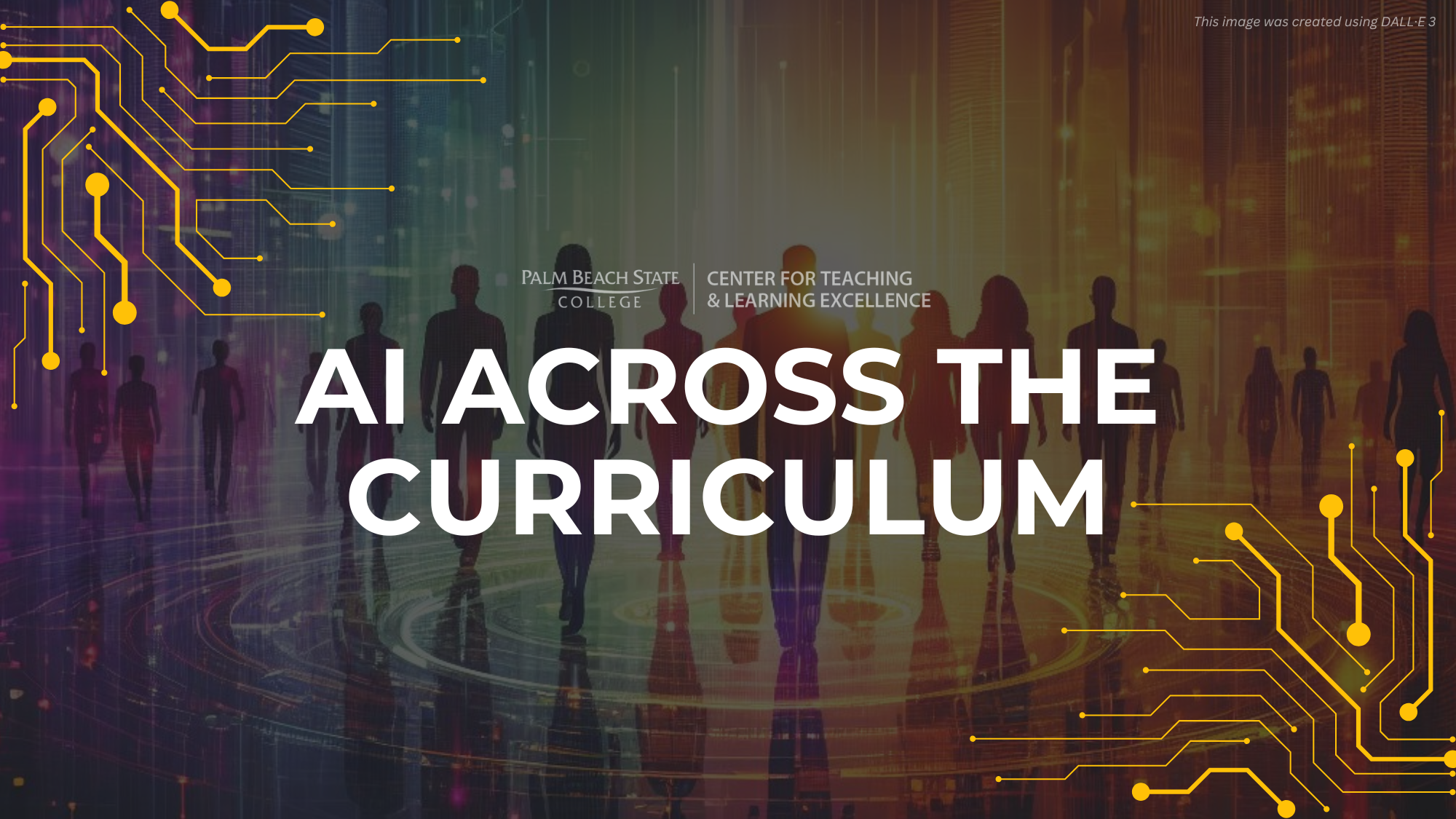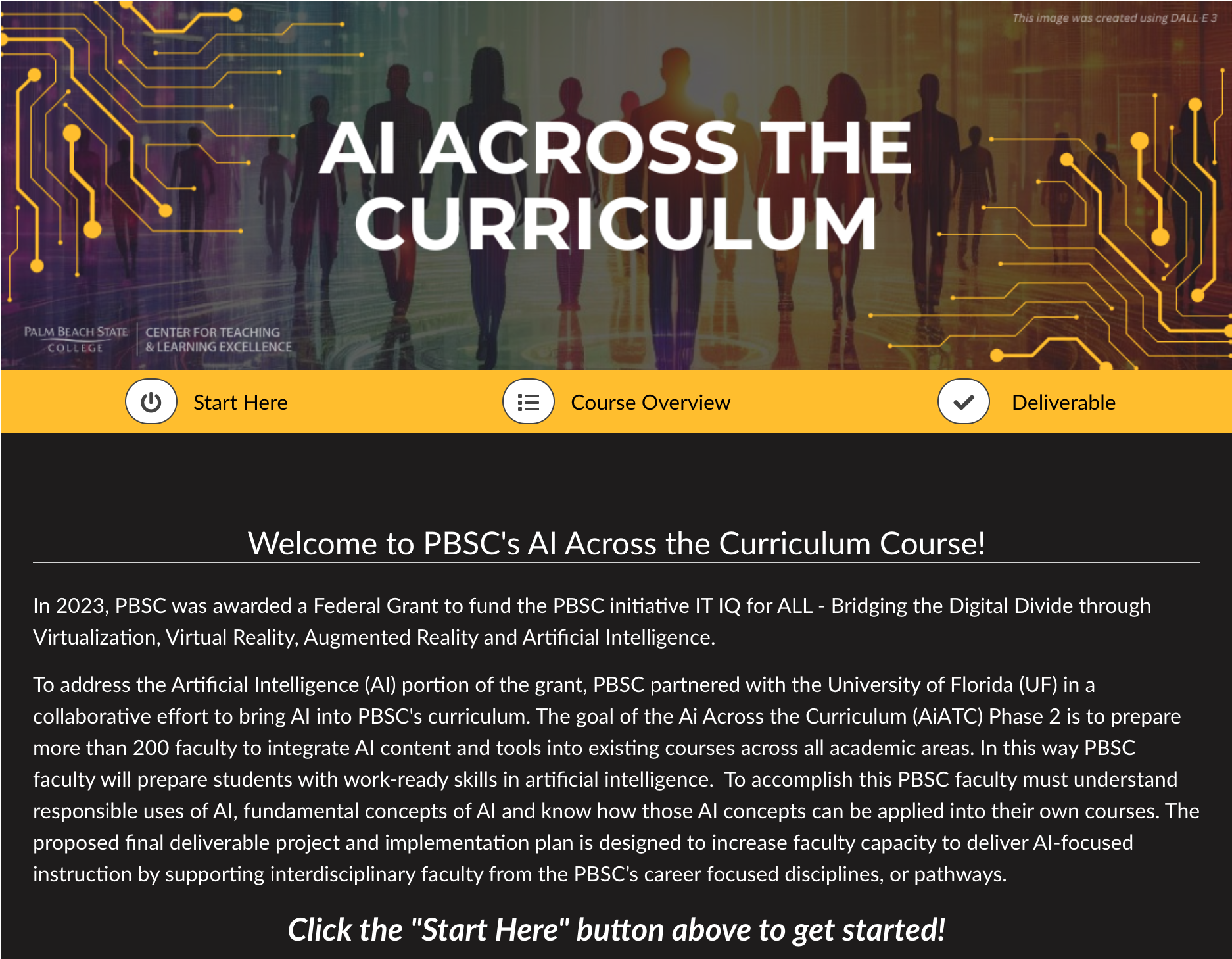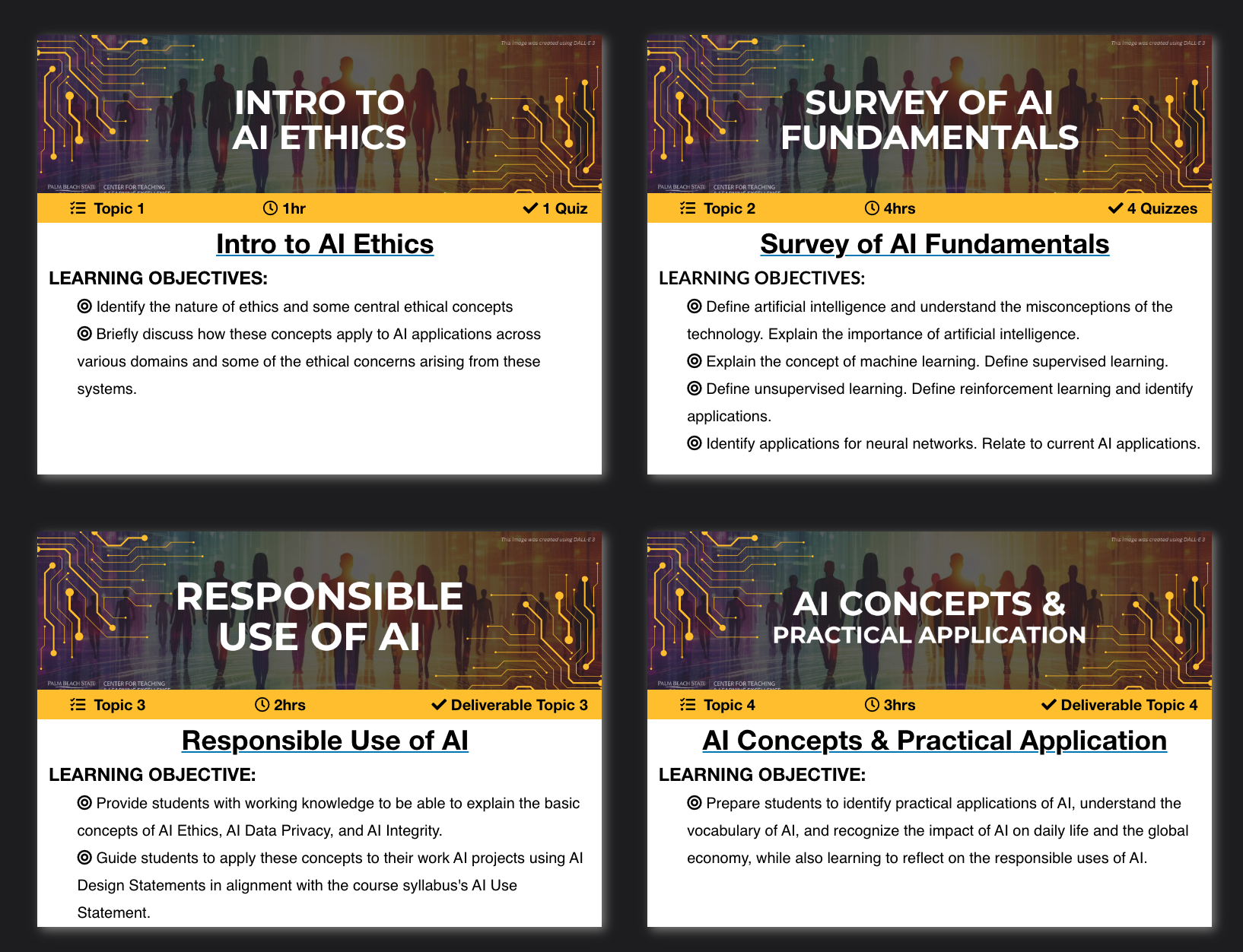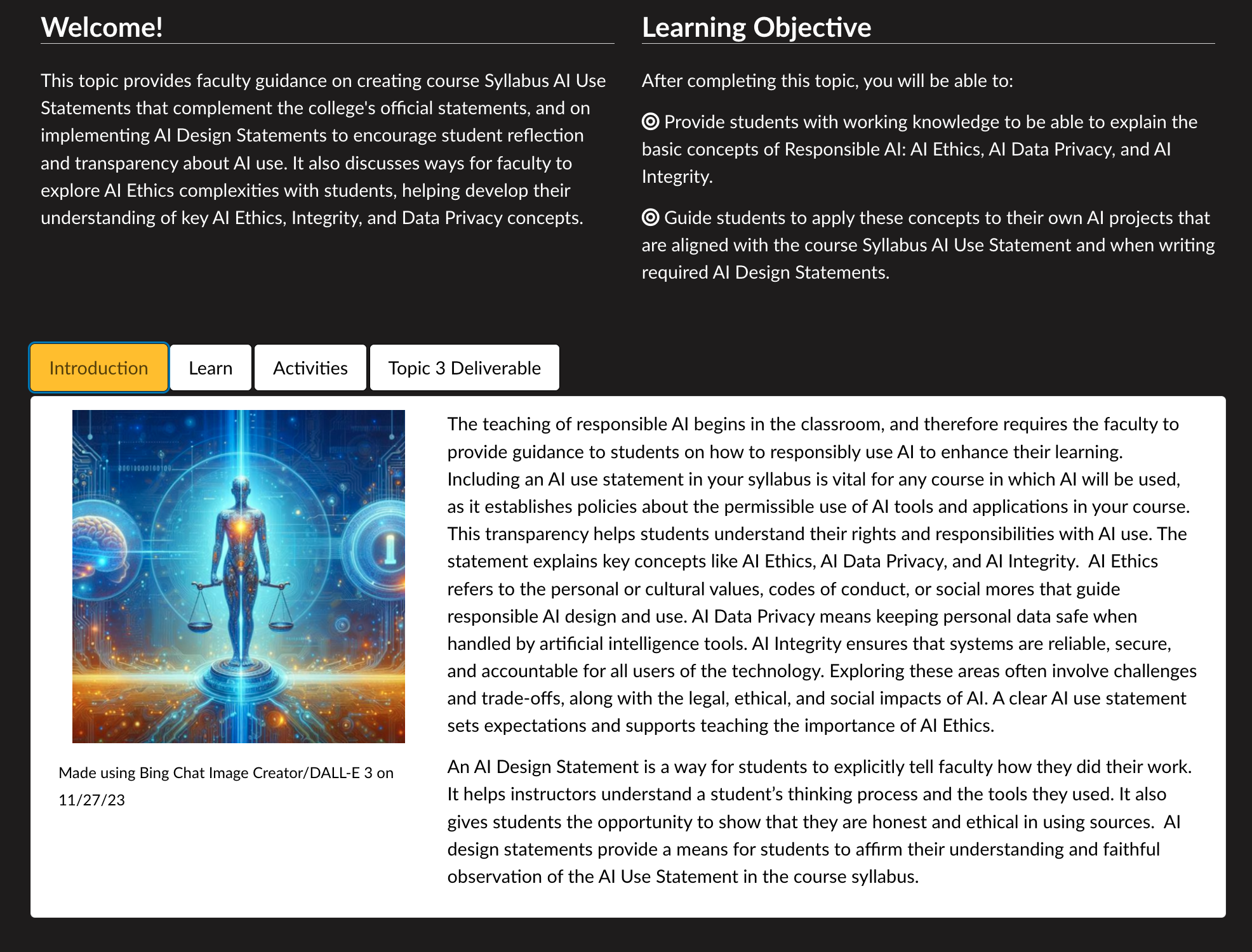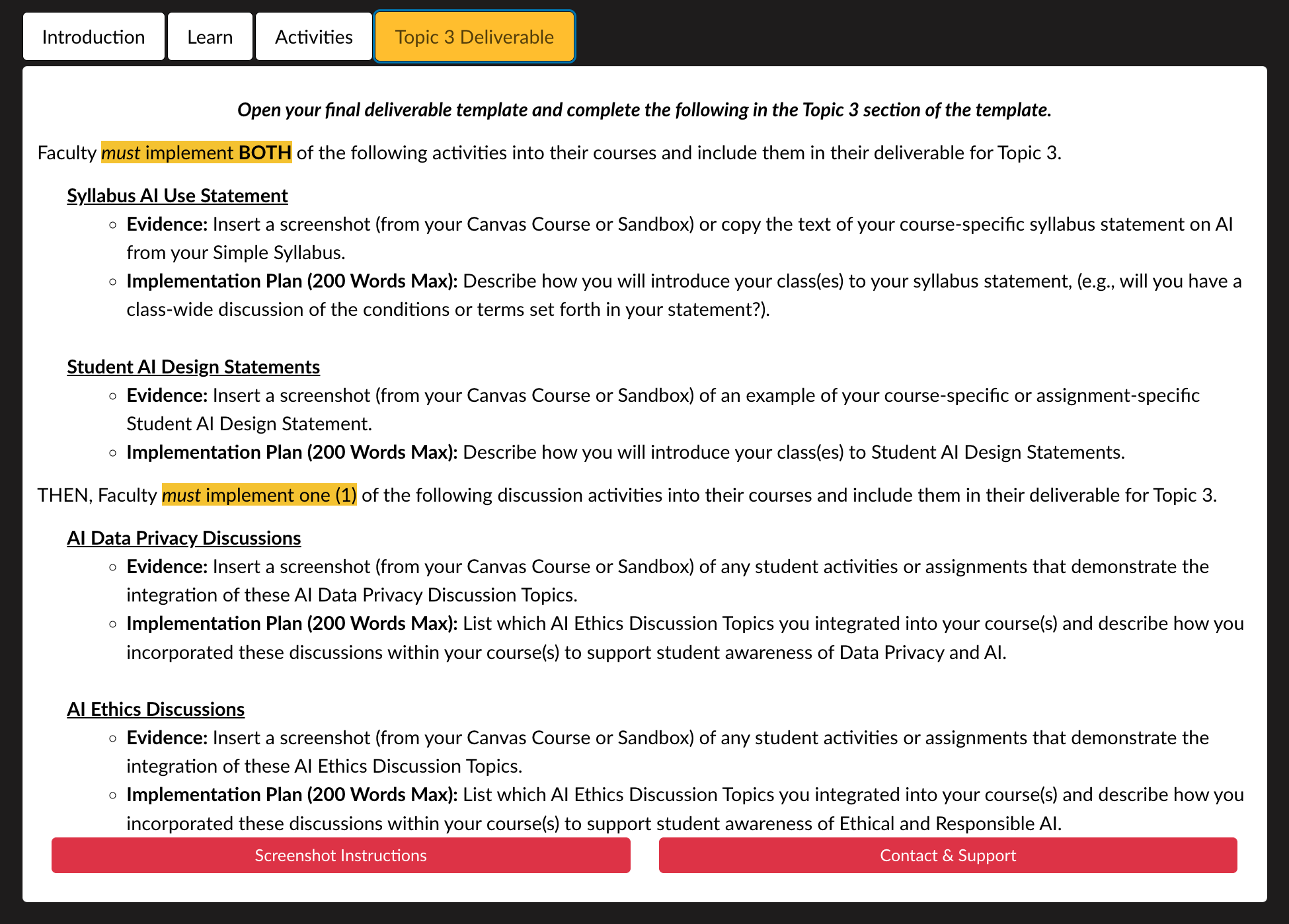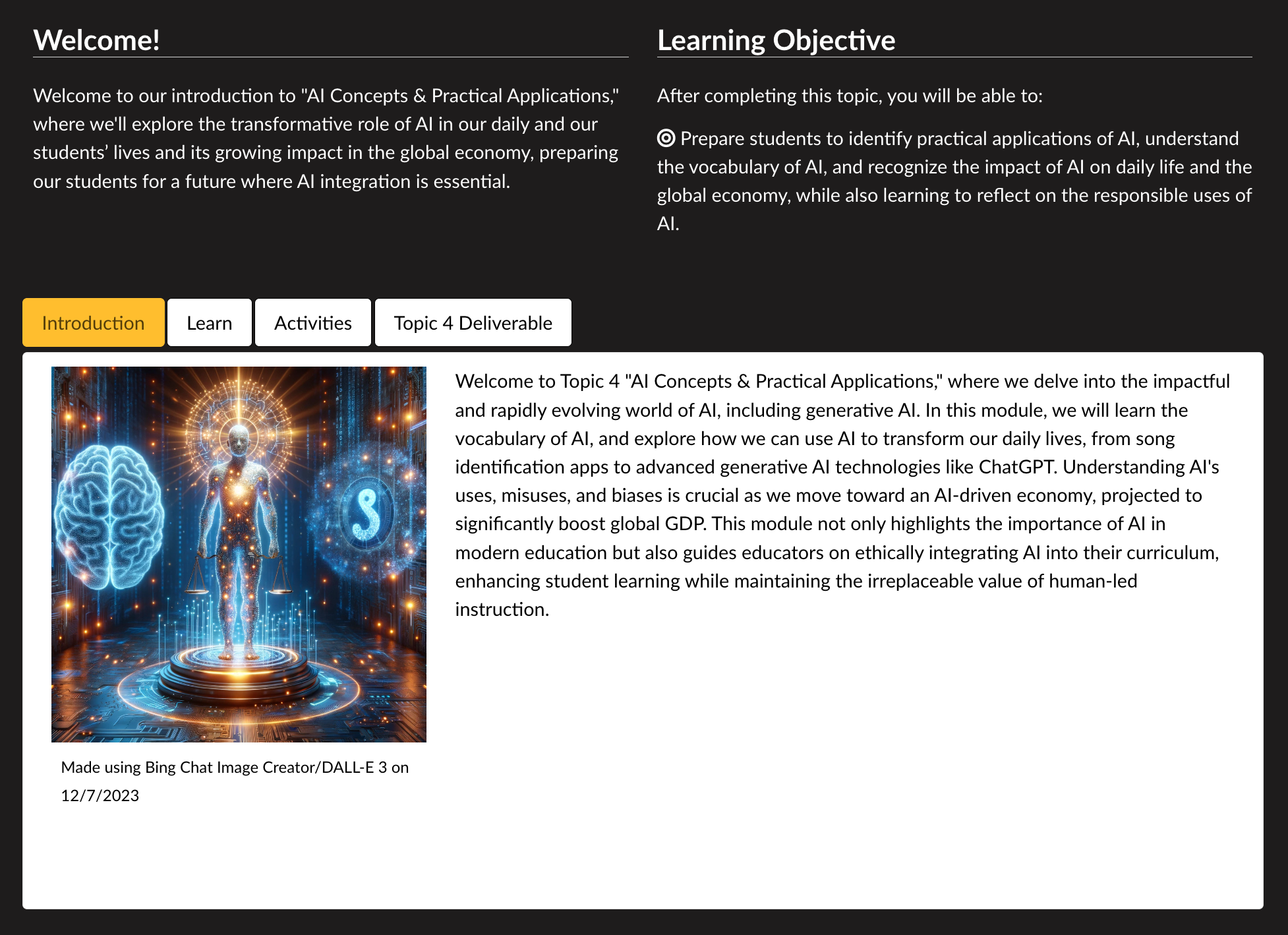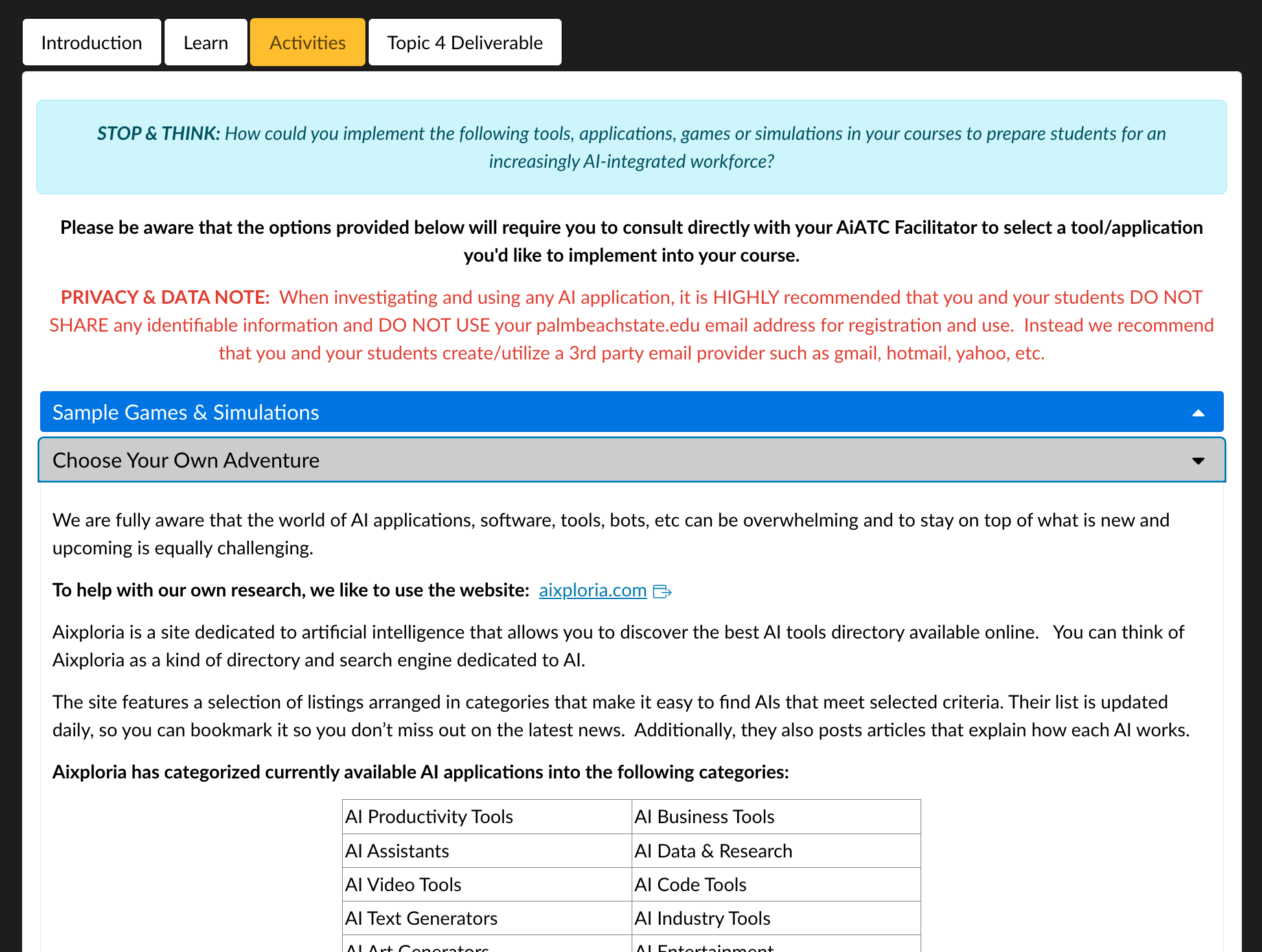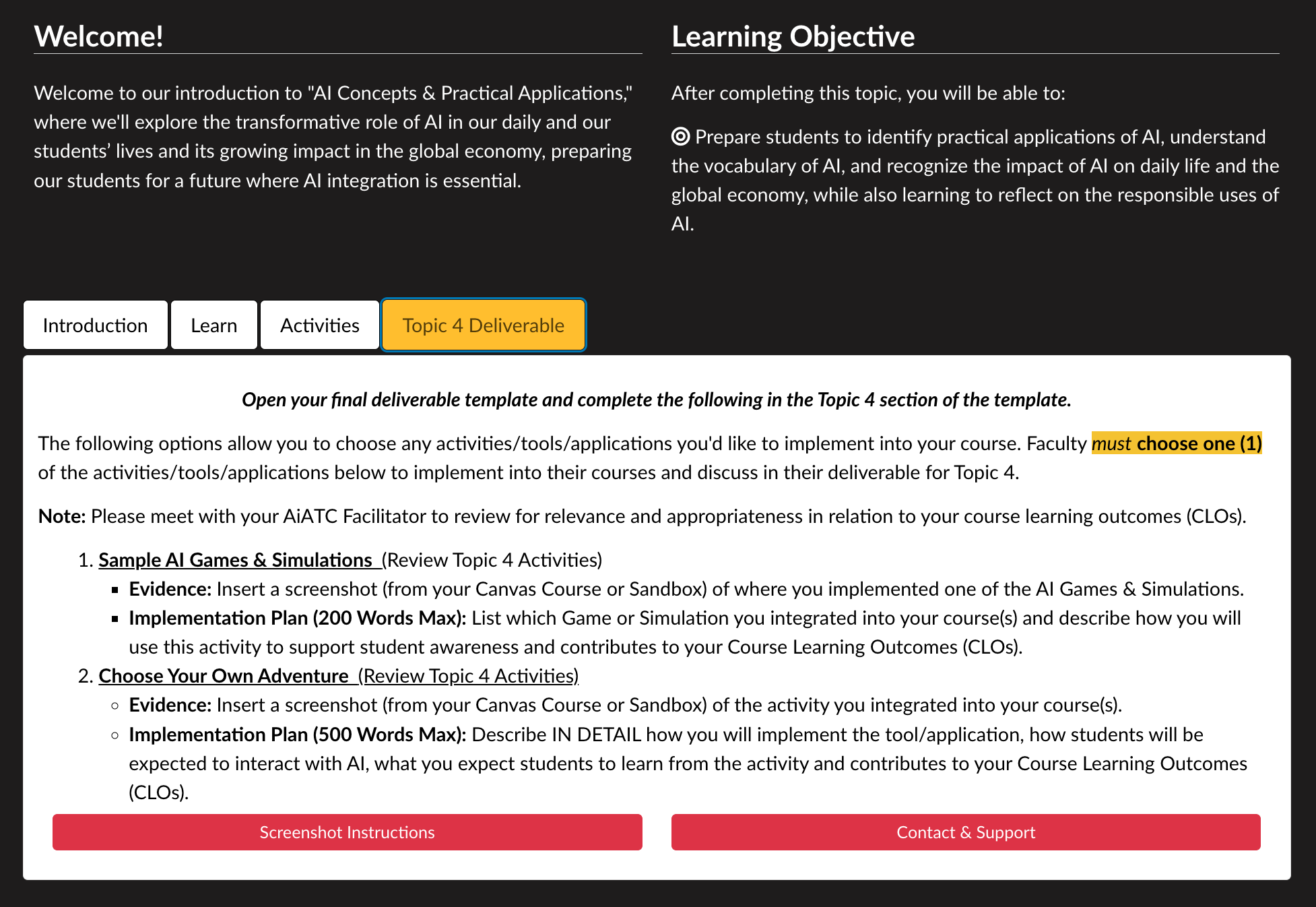AI Across the Curriculum
The Ai Across the Curriculum (AiATC) course is designed to prepare over 200 faculty members to incorporate AI content and tools into their existing courses across all academic disciplines. This initiative aims to equip Palm Beach State College faculty with the knowledge and skills necessary to prepare students for AI-related careers.
Faculty will gain a comprehensive understanding of responsible AI usage, fundamental AI concepts, and practical applications. The course covers key topics such as AI ethics, data privacy, machine learning (including supervised, unsupervised, and reinforcement learning), and neural networks. By the end of the course, faculty will be able to confidently integrate AI principles into their teaching, fostering a future-ready workforce.
Audience: College-Level Instructors at Palm Beach State College
Responsibilities: Team & Project Management, Instructional Design, Objectives and Assessments, Content Writing, Visual Design, eLearning Development, Course Management
Tools Used: Canvas by Instructure, CidiLabs DesignPlus, Vimeo, Kaltura, and Adobe Suite
Scroll to view static images from the course
Problem
In March 2023, the rapid advancement and widespread adoption of artificial intelligence (AI) technologies created significant stress among the faculty at Palm Beach State College (PBSC). Faculty members were uncertain about how to effectively integrate AI into their curricula and address the ethical implications of these technologies. This uncertainty and lack of preparedness threatened to hinder the educational experience and the institution's ability to stay current with technological trends.
Solution
To address this challenge, PBSC partnered with the University of Florida's AI for All initiative. Through this collaboration, 20 faculty members and one coordinator received certification in AI fundamentals and ethics. Leveraging this training, PBSC developed a comprehensive four-module course designed to empower faculty with the knowledge and skills needed to integrate AI fundamentals, ethics, and practical use cases into their teaching. This course aimed to alleviate faculty concerns, enhance their confidence in handling AI-related content, and ensure that PBSC remains at the forefront of educational innovation.
The Process
Initial Planning Phase
Based on the scope and goals defined by our grant stakeholders, I created a comprehensive course outline, identifying key topics and structuring the overall flow of the course. To ensure high-quality content, I integrated existing resources authored by the University of Florida into the outline, tailoring the content to our course objectives and target audience. This step laid the foundation for the course design and informed the direction of the entire project.
Writing & Aligning Learning Objectives
With the course outline in place, I proceeded to write and align specific, measurable learning outcomes for each of the four modules. I made sure each objective was clearly linked to the existing content and contributed to the overall learning goals of the course. These objectives guided the instructional design process and set clear expectations for both the learners and the content development team.
Team Leadership & Collaboration
As the project lead, I managed a team of three instructional designers and subject matter experts (SMEs). I facilitated weekly meetings to ensure everyone was aligned with the project’s goals and timelines. I provided ongoing support, offering guidance on instructional design best practices, content organization, and assessment strategies. I also coordinated communication between the team members to ensure smooth collaboration, resolving any issues that arose and making sure that all deliverables were met on time.
Content Development & Design
In this phase, I took an active role in both content design and writing. I worked closely with the team to develop engaging content pages, including text, multimedia, and interactive components that supported the learning objectives. I reviewed drafts of content created by my team, offering feedback to ensure consistency, clarity, and alignment with the learning goals. Additionally, I contributed directly to the writing of key sections of the course, ensuring that the material was clear, engaging, and andragogically sound.
Review & Quality Assurance
Once the content was developed, I led the review process to ensure all materials met quality standards. I collaborated with the SMEs to validate the accuracy of the information and confirmed that the course content was both engaging and relevant. I also worked with the instructional design team to test the usability of the course, including navigation, interactive elements, and assessments, ensuring that learners would have a smooth and effective learning experience.
Final Edits & Course Refinement
After incorporating feedback from the review phase, I oversaw final revisions to the course materials. This included fine-tuning the content, updating assessments, and ensuring that all multimedia elements were functioning properly. I also made adjustments to improve the overall flow and pacing of the course based on feedback from beta testers.
Course Launch & Post-Launch Support
With the course finalized, I managed the launch process, ensuring that all content was properly uploaded to the learning management system (LMS) and accessible to learners. After launch, I monitored learner feedback and course performance, addressing any issues that arose and working with the team to make iterative improvements. I also provided support for instructors who would be teaching the course, offering guidance on how to effectively integrate the content into their teaching practice.

